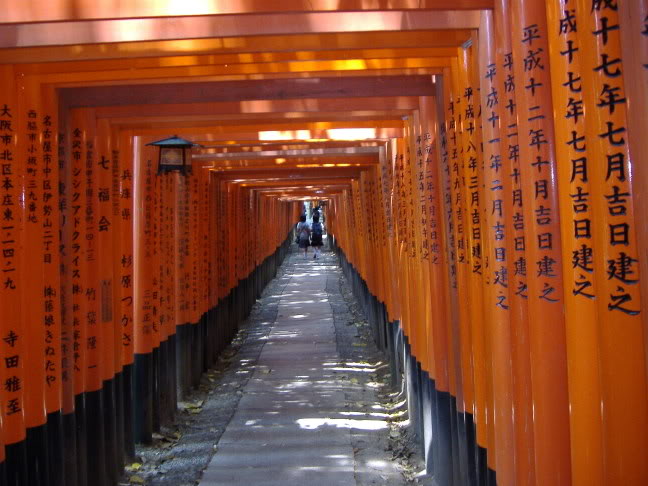The subject of religion in Japan is a complex one. The two main religious traditions here are Buddhism, which was introduced through the Korean Peninsula along with the kanji writing system in the 6th century; and Shinto, the naturalistic original religion of Japan which sees kami, gods or spirits, in trees, rivers and mountains. Anywhere between 63-96% of Japanese report themselves as being Buddhist, with around 3% and 1% for Shinto and Christianity, respectively. Exact numbers are difficult to pin down, though, since there’s no subject more “about” (an English word the Japanese use to mean nebulous or imprecise) than religion here. Although someone’s family may belong to one religion or another, nearly everyone mixes themes regularly over the course of their lives, generally turning to Shinto or Christianity for life-affirming ceremonies like weddings or baby namings and Buddhism for funerals and ceremonies that pay respect to family members who have gone on. It’s quite a mish-mash, really, but somehow each group is able to coexist alongside the others without friction. If you ever have a question about religeon in Japan, feel free to ask a Japanese person about it, but be prepared for a less than satisfactory answer, as Japanese rarely think deeply about their own country and culture in the way that foreigners fascinated by the country do. One of the great achievements of modern Japanese society is that they’ve managed to completely separate religion from politics, and when election time rolls around, the question of what religious background a certain candidate might have isn’t contemplated in the slightest. (A possible exception to this might be members of the New Komeito Party, which is affiliated with the “evangelical” Buddhist movement, Sokka Gakkai, and whose members are presumably a member of that religeon.)















